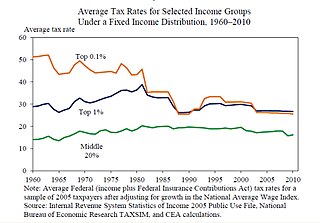Ad hominem, short for argumentum ad hominem, is a term is applied to several different types of arguments, most of which are fallacious. Typically it refers to a fallacious argumentative strategy whereby genuine discussion of the topic at hand is avoided by instead attacking the character, motive, or other attribute of the person making the argument, or persons associated with the argument, rather than attacking the substance of the argument itself. The most common form of this fallacy is "A makes a claim a, B asserts that A holds a property that is unwelcome, and hence B concludes that argument a is wrong".
An irrelevant conclusion, also known as ignoratio elenchi or missing the point, is the informal fallacy of presenting an argument that may or may not be logically valid and sound, but fails to address the issue in question. It falls into the broad class of relevance fallacies.

Argument from ignorance, also known as appeal to ignorance, is a fallacy in informal logic. It asserts that a proposition is true because it has not yet been proven false or a proposition is false because it has not yet been proven true. This represents a type of false dichotomy in that it excludes the possibility that there may have been an insufficient investigation to prove that the proposition is either true or false. It also does not allow for the possibility that the answer is unknowable, only knowable in the future, or neither completely true nor completely false. In debates, appeals to ignorance are sometimes used in an attempt to shift the burden of proof. In research, low-power experiments are subject to false negatives and false positives. The term was likely coined by philosopher John Locke in the late 17th century.
Argumentum ad baculum is the fallacy committed when one makes an appeal to force or threat of force to bring about the acceptance of a conclusion. One participates in argumentum ad baculum when one points out the negative consequences of holding the contrary position. It is a specific case of the negative form of an argument to the consequences.

Warren Edward Buffett is an American business magnate, investor, and philanthropist, who is the chairman and CEO of Berkshire Hathaway. He is considered one of the most successful investors in the world and has a net worth of US$88.9 billion as of December 2019, making him the fourth-wealthiest person in the world.
The appeal to novelty is a fallacy in which one prematurely claims that an idea or proposal is correct or superior, exclusively because it is new and modern. In a controversy between status quo and new inventions, an appeal to novelty argument is not in itself a valid argument. The fallacy may take two forms: overestimating the new and modern, prematurely and without investigation assuming it to be best-case, or underestimating status quo, prematurely and without investigation assuming it to be worst-case.
An appeal to pity is a fallacy in which someone tries to win support for an argument or idea by exploiting his or her opponent's feelings of pity or guilt. It is a specific kind of appeal to emotion. The name "Galileo argument" refers to the scientist's suffering as a result of his house arrest by the Inquisition.
An appeal to spite is a fallacy in which someone attempts to win favor for an argument by exploiting existing feelings of bitterness, spite, or schadenfreude in the opposing party. It is an attempt to sway the audience emotionally by associating a hate-figure with opposition to the speaker's argument.
Appeal to consequences, also known as argumentum ad consequentiam, is an argument that concludes a hypothesis to be either true or false based on whether the premise leads to desirable or undesirable consequences. This is based on an appeal to emotion and is a type of informal fallacy, since the desirability of a premise's consequence does not make the premise true. Moreover, in categorizing consequences as either desirable or undesirable, such arguments inherently contain subjective points of view.
Argument from fallacy is the formal fallacy of analyzing an argument and inferring that, since it contains a fallacy, its conclusion must be false. It is also called argument to logic, the fallacy fallacy, the fallacist's fallacy, and the bad reasons fallacy.
Argumentum ad lazarum or appeal to poverty is the informal fallacy of thinking a conclusion is correct solely because the speaker is poor, or it is incorrect because the speaker is rich. It is named after Lazarus, a beggar in a New Testament parable who receives his reward in the afterlife.

Reductio ad Hitlerum, or playing the Nazi card, is an attempt to invalidate someone else's position on the basis that the same view was held by Adolf Hitler or the Nazi Party, for example: "Hitler was against tobacco smoking, X is against tobacco smoking, therefore X is a Nazi".
Value investing is an investment paradigm that involves buying securities that appear underpriced by some form of fundamental analysis. The various forms of value investing derive from the investment philosophy first taught by Benjamin Graham and David Dodd at Columbia Business School in 1928, and subsequently developed in their 1934 text Security Analysis.
Owing to its origin in ancient Greece and Rome, English rhetorical theory frequently employs Greek and Latin words as terms of art. This page explains commonly used rhetorical terms in alphabetical order. The brief definitions here are intended to serve as a quick reference rather than an in-depth discussion. For more information, click the terms.
Argumentum ad lapidem is a logical fallacy that consists in dismissing a statement as absurd, invalid, or incorrect, without giving proof of its absurdity.

Name calling is a form of verbal abuse in which insulting or demeaning labels are directed at an individual or group. This phenomenon is studied by a variety of academic disciplines such as anthropology, child psychology, and political science. It is also studied by rhetoricians, and a variety of other disciplines that study propaganda techniques and their causes and effects. The technique is most frequently employed within political discourse and school systems, in an attempt to negatively impact their opponent.
In logic, reductio ad absurdum, also known as argumentum ad absurdum, apagogical arguments, negation introduction or the appeal to extremes, is a form of argument that attempts to establish a claim by showing that the opposite scenario would lead to absurdity or contradiction. It can be used to disprove a statement by showing that it would inevitably lead to a ridiculous, absurd, or impractical conclusion, or to prove a statement by showing that if it were false, then the result would be absurd or impossible. Traced back to classical Greek philosophy in Aristotle's Prior Analytics, this technique has been used throughout history in both formal mathematical and philosophical reasoning, as well as in debate.
In argumentation theory, an argumentum ad populum is a fallacious argument that concludes that a proposition must be true because many or most people believe it, often concisely encapsulated as: "If many believe so, it is so".

The Buffett Rule is part of a tax plan proposed by President Barack Obama in 2011. The tax plan would apply a minimum tax rate of 30 percent on individuals making more than one million dollars a year. According to a White House official, the new tax rate would directly affect 0.3 percent of taxpayers.




